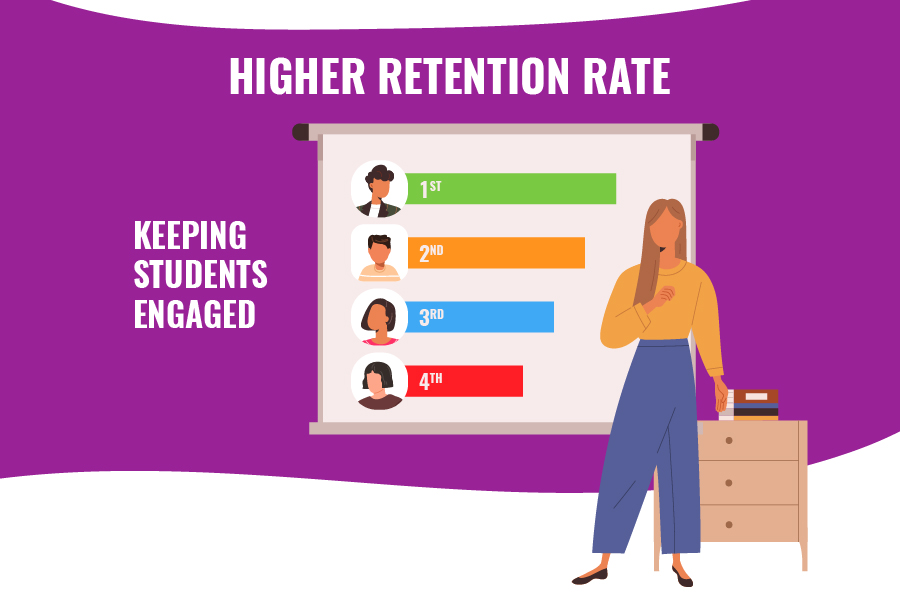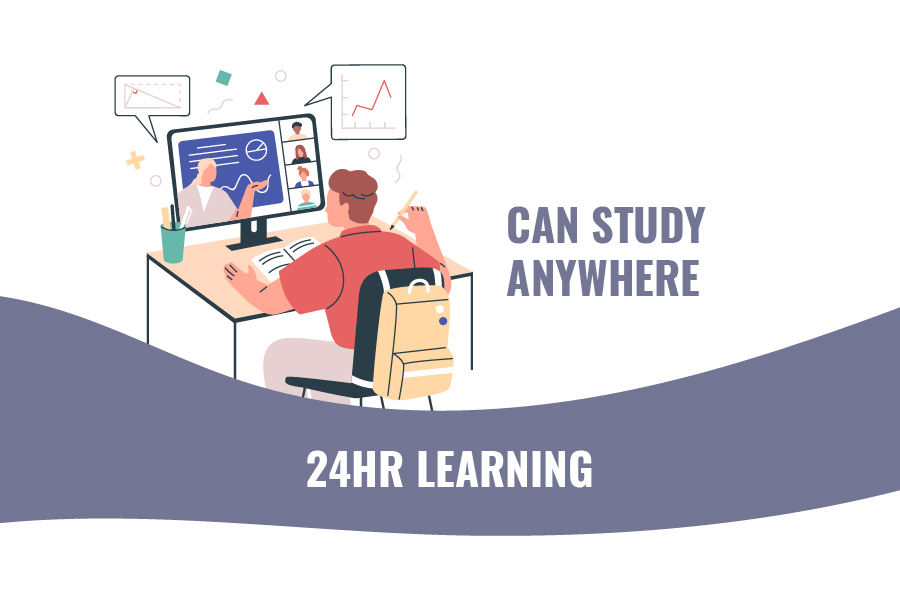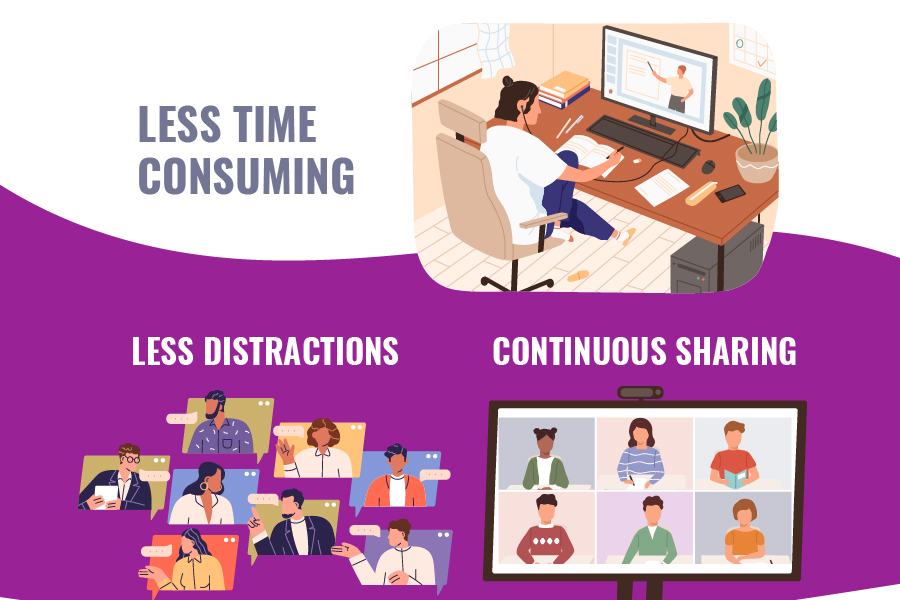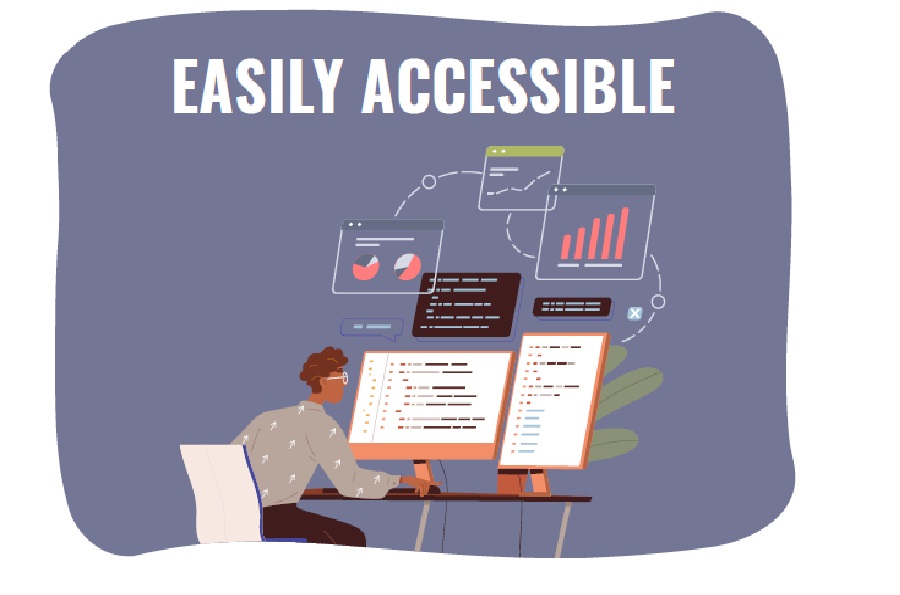Since 2020, eLearning has transformed the educational landscape, offering a flexible, accessible way to learn that caters to a diverse global audience. Nevertheless, over four years later, is online learning effective still?
At NCC Home Learning, we have learnt a lot about how online learning courses operate, and how they have transformed the learning techniques of our clientele. Some are still on the fence about the benefits of online learning. In this article, we will look into the effectiveness of online learning, highlighting its advantages such as higher retention rates, the ability to study from any location, and around-the-clock access to educational resources, to truly answer the question, “is online learning effective?”
Make sure to learn about the rise of online learning since COVID-19 to help shape your understanding of the impact it has had on the world for learners.
- How To Engage Modern Learners
- Strengths of Online Learning
- 1. Higher Retention Rate
- 2. Can Study Anywhere
- 3. 24hr Learning
- 4. Less Time Consuming
- 5. Less Distractions
- 6. Continuous Sharing
- 7. Equal Interactions
- 8. Easily Accessible
- 9. Large Audience Base
- 10. Creativity
- 11. Eco-Friendly
- 12. Work Efficiency
- Online Learning: What To Avoid Teaching
- The True Effectiveness of Online Learning
- FAQs
- Sources
How To Engage Modern Learners
The question of whether online learning is effective resonates across academia and the professional world as well. As technology advances, the regular classroom is transformed into a digital learning space where instructors and students can still engage dynamically, hence why many still question if virtual learning is effective? Research and trends suggest that online education not only matches but in some cases, surpasses traditional methods in effectiveness.
Communication is a vital part of our lives, from the workplace to our personal life. Explore our online communication courses and see how you can develop your communication skills further.
Strengths of Online Learning
Now that we have underlined the importance of online learning in modern society, let’s look into the strengths that online learning can bring when compared to a physical classroom.
1. Higher Retention Rate

One of the standout features of online learning is its flexibility.
Is online learning as good as face-to-face learning? For many, the ability to access education from anywhere at any time turns the scales. This flexibility is particularly beneficial for those with hectic schedules or who live in remote areas. The virtual classroom is not confined by geographical boundaries, enabling students from diverse backgrounds to participate in educational experiences that were once beyond reach.
Studies have shown that online courses boost student retention rates significantly, with figures ranging from 25–60%. This increase is due to the engaging nature of digital content and the autonomy it offers learners. The effectiveness of online learning in keeping students enrolled and motivated challenges traditional educational models, showcasing how digital platforms can cater to various learning styles and preferences.
2. Can Study Anywhere

The 24/7 availability of course materials means that learning can happen at a time that suits each student’s needs, especially if they have part time jobs or other life dedications. Moreover, the virtual environment can minimise common classroom distractions, enabling a more focused learning experience. This setup is especially effective for students who prefer to study in quieter spaces, and the simplest items needed is Wi-Fi access and a mobile device.
3. 24hr Learning
The concept of a virtual classroom accessible 24/7 encapsulates the very essence of flexibility in education. This continuous access not only caters to different time zones but also accommodates various personal and professional commitments, making it possible for more people to advance their education or skills without sacrificing other areas of their life.
4. Less Time Consuming

The effectiveness of online learning is further demonstrated by its time efficiency. With courses available around the clock, learners can optimise their study times, leading to less time spent on commuting and waiting for scheduled classes. This model is particularly beneficial for those balancing work and study, where even short bursts of learning during a lunch break can further advance their educational needs.
5. Less Distractions
Unlike physical classrooms, where the teacher can become stressed out having to handle the hustle and bustle of their students, online learning offers variable options instead:
- Focused Environment: The online setting reduces common classroom distractions, such as side conversations or environmental noise, which can detract from learning. Online platforms often provide structured learning paths with regular assessments to keep students engaged. Research indicates that this continuous assessment helps maintain high levels of concentration and information retention.
- Continuous Evaluation: The digital format allows for more frequent assessments, which can be integral in understanding student progress. This immediate feedback loop enables instructors to tailor support precisely when and where it’s needed, thereby improving the overall learning experience and ensuring that students remain on track throughout their courses.
6. Continuous Sharing
Another one of the most significant strengths of online learning is the dynamic interaction it facilitates between participants. Whether through forums, chat rooms, or collaborative projects, students and instructors can share insights and resources in real-time. This interaction fosters a community of learning that is both supportive and enriching, proving that online learning can appropriately replicate and sometimes exceed the collaborative possibilities of traditional classrooms.
7. Equal Interactions

Online courses level the playing field for all students, particularly those who may prefer a physical classroom setting. The invention of discussion forums such as Microsoft Teams, Zoom, and any interlinked school networks allows individuals to take the time they need to formulate thoughtful responses, ensuring that all voices can be heard. This inclusive aspect is a testament to the effectiveness of online learning, allowing for deeper and more reflective engagements with the material and peers.
8. Easily Accessible

Online learning also makes all resources easily accessible, therefore aiding its effectiveness. Accessible learning content allows students to engage with materials that resonate with their personal learning needs. Online platforms enable learners to interact with course materials and discussions selectively, focusing on aspects that are most relevant to their interests and goals. This selective engagement facilitates a more personalised and effective learning experience.
Doing digital online learning also simplifies the inclusion of guest experts and collaboration with students from other institutions worldwide. This access to a vast array of resources—ranging from scholarly articles to databases located across different continents—improves the depth of learning. Students are no longer limited to the resources of their local libraries; instead, they can tap into global knowledge bases to enrich their understanding of their chosen topic.
9. Large Audience Base

The virtual learning environment offers a level of anonymity that helps minimise bias related to age, appearance, and background. In many ways, online learning excels here by providing an unbiased platform where the focus is solely on the content and the quality of discussion. This aspect fosters a more inclusive educational setting where all students have the opportunity to contribute meaningfully without the fear of judgement.
10. Creativity

The shift towards online learning has pushed educators to adopt more interactive and engaging teaching methods, which are crucial for fostering critical thinking and creativity among students. The semi-autonomous nature of the virtual learning environment allows for innovative approaches to instruction that encourage students to think independently and apply what they learn in practical, real-world situations.
11. Eco-Friendly

Is virtual learning effective not only in education but also in environmental impact? Yes, it significantly reduces the carbon footprint associated with traditional classroom settings. Online courses consume considerably less energy and produce less CO2, making them a more sustainable choice. By facilitating learning that is both effective and environmentally friendly, online education helps align personal and professional development with ecological responsibility.
12. Work Efficiency

Embracing eLearning as a technological training method significantly improves work efficiency and company revenue. Studies show that companies utilising online learning platforms experience a 26% increase in revenue per employee. This increase is not only a testament to the effectiveness of online learning but also highlights how it contributes to employee satisfaction and professional development.
The flexibility and accessibility of eLearning allow employees to improve their skills conveniently, too, leading to increased job satisfaction and reduced turnover rates. Employees feel valued when given opportunities to grow, making them less likely to seek alternative employment.
Online Learning: What To Avoid Teaching

While the effectiveness of online learning is evident, it’s crucial to recognise its limitations. Certain subjects, particularly those requiring hands-on experience like surgery, dental hygiene, or physical sports, are less suited for online formats. Is online learning as good as face-to-face learning? In these cases, traditional methods still prevail due to the physical nature of the learning objectives.
To bridge the gap, hybrid models have emerged as viable solutions, combining online theory with practical sessions. This approach expands access and maintains the quality of learning for complex subjects, underscoring the flexibility of online education to adapt to diverse educational needs. However, it remains clear that not all learning outcomes can be effectively achieved through virtual means alone, highlighting the need for careful consideration of the method of instruction based on the subject matter.
It’s never too late to learn a new skill. Here is how learning in retirement can reshape elderly lives.
The True Effectiveness of Online Learning
So, based on the evidence provided, online learning has proven to be an effective, flexible, and accessible educational tool that caters to a diverse range of learning needs. With advantages like increased work efficiency, broad accessibility, and a supportive environment for creativity and critical thinking, it often surpasses traditional educational methods. However, recognising its limitations is crucial, particularly for subjects that require physical presence. Embracing a hybrid approach can help bridge these gaps, ensuring a thorough learning experience for all. Furthermore, with children of younger age groups becoming more familiar with online devices, it’s important to adopt these formulas so that various learning strategies can be implemented throughout their educational journey.
FAQs
Is online learning as effective as classroom learning?
Online learning can be as effective as classroom learning depending on the course content, technology used, and student engagement. However, its effectiveness varies by individual learning styles and the subject being taught.
What are the effects of online learning on student performance?
The effects of online learning on student performance can be mixed. Some students thrive in an online environment due to flexibility and self-paced learning, while others may struggle with lack of face-to-face interaction and motivation. Overall, success often depends on the student’s adaptability to online formats and the quality of the online program.
Is online education better than offline education?
Whether online education is better than offline education depends on several factors including the student’s learning style, the subject matter, and the quality of the educational content. Online education offers greater flexibility and accessibility, which can be beneficial for self-motivated learners and those with logistical constraints. However, offline education typically provides more direct interaction and structured learning environments, which can enhance understanding and retention for many learners.
Sources
World Economic Forum. (2020) The COVID-19 pandemic has changed education forever. This is how. [online] Available at: https://www.weforum.org/agenda/2020/04/coronavirus-education-global-covid19-online-digital-learning/ [accessed 20/05/24]








